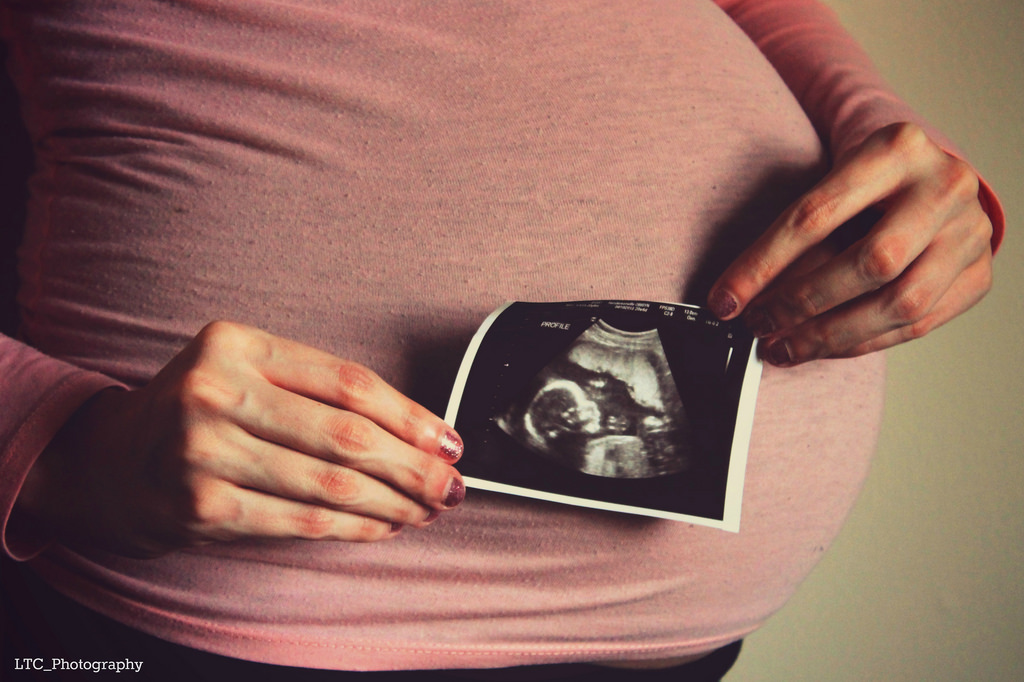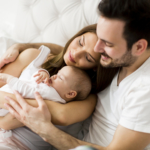Psychological symptoms play a significant role in infertility. Some studies have examined the impact of psychological symptoms (e.g., anxiety, depression) on fertility status. Most of this research has focused on women with unsuccessful IVF treatment. Some have investigated the extent to which a woman’s psychological state during assisted reproductive therapy (ART, which includes in vitro fertilization (IVF)) interferes with the success of the treatment. ART itself has been shown in other studies to negatively impact a patient’s psychological well-being, with prolonged treatment associated with increased depression and anxiety.
However, little is known about whether the psychological symptoms associated with infertility and its treatment persist after successful fertility treatment.
A small number of studies have evaluated the persistence of psychological symptoms during the postpartum period in women who conceived through ART using various subjective measures. McMahon (1997) found that at four months postpartum, women who conceived singleton pregnancies with ART reported lower self-esteem and self-efficacy than women who conceived naturally, but found no differences between the groups in postpartum anxiety and depressive symptoms.
Klock and Greenfield (2000) evaluated psychological differences during pregnancy (12 and 28 weeks gestation) in women who conceived through ART compared with women who conceived naturally. These investigators found no difference in depressive symptoms between the two groups during pregnancy, but observed that the IVF group reported greater self-esteem and less anxiety toward the end of their pregnancy compared with the beginning of their pregnancy.
In a recent study published in Fertility and Sterility (Monti et al, 2008), researchers investigated the psychological symptoms of women in their third trimester through the postpartum period, comparing symptoms in women who conceived through ART to women who conceived naturally. They used a standardized measure of depression, the EPDS (Edinburgh Postnatal Depression Scale), a 10 question diagnostic with a score range from 0 to 30, with 10 often used as a cutoff for major depression. The study did not address differences in rates of depression pre-pregnancy by mode of conception, but the investigators reported no significant differences between the two groups in socio-demographic characteristics, including marital status, mode of delivery, and frequency of attendance in antenatal classes.
They found that the group that had conceived through ART reported a higher mean EPDS score during the third trimester (7.88 vs. 3.86) as well as 1 week postpartum (8.0 v. 4.5) than the group that conceived naturally. Additionally, women who conceived through ART reported feeling depressive symptoms more frequently during the third trimester than the women who conceived naturally, but the investigators found no significant difference during the postpartum period.
This study provides greater evidence that mild to moderate psychological symptoms associated with infertility may persist even after a woman conceives. These findings emphasize that infertility is a clinical condition with complex psychological issues, and suggest that conception through ART may be associated with an increased risk of depression symptoms during pregnancy and the postpartum period. Clinical decisions should take into account this increased risk; clinical care for women who are planning to conceive through ART should include psychological support, consultation, and, if necessary, intervention, even after they successfully conceive.
Erica Pasciullo, BA
Hadine Joffe, MD, MSc







I have been searching affects after fertility medications, and hadn’t found anything amazingly. I have had so many changes in my body since fertility treatments, not just physically, but emotionally, that I have felt were entirely due to all of the dramatic hormonal changes, shutting the body off, and then on again. I was not surprised when I found an article about increased risk of depression after ivf. I do not think it is just the emotional toll it takes, but also the huge changes in your body hormonally. So little research about that!
I can’t believe this – I could have written what you wrote exactly!!!!!!! I have been researching too, both the physical impact and the emotional impact. I was lucky enough to finally have success with IVF, but was amazed that I became depressed. My postpartum depression & and anxiety have been through the roof, like nothing I’ve ever experienced. I’ve been trying to find out about any programs for rebalancing your hormones after IVF but have found nothing, and I think that that should definitely be a part of an IVF center!!! Or some kind of specialty, because what I find is about PPD after pregnancy, but I find nothing about if your body was, like you wrote, “shut off & on” unnaturally. I’m not complaining about my success, as I prayed for it, & know of the pain when you feel hopeless that you’ll ever have a child. I just there was more known about what could happen to your body after, how it can affect your moods, & your body, for seemingly much longer than those who had no fertility medications (& even those that did, not everyone has these reactions!!!) I feel like I’ll have an endless road in front of me trying to find help out of this often pit of despair, and extreme exhaustion, and this has been long enough after birth where everyone tells me my body should have righted itself by now. But I’m still so out of whack, and now I have the most intense PMS, it seems much more like PMDD, and I scare myself sometimes with the extreme irritability, and tears, and rather die than put my babies through this. GOD, I wish there was an afterprogram for IVF success to normalize our bodies!!!!!!!
Im exactly the same as you two! Have tried and tried to fine some info on after care, I have been really depressed and anxious since we had Ivf and our beautiful baby.i desperately want to have the state of mind to fully enjoy what we have tried for years to have.I would welcome any advice you might come across and I will share anything I find.
I am really interested in this subject as I had twins on my fourth attempt of IVF in 1997 , I
Am now trying to research if IVF can affect a women’s menopause . I had a very successful but stress ful career that has now come to a end due to ill health . 1 have been diagnosed with stress / anxiety / depression / ptsd . At the age of 53 I am now going through the menopause & trying to manage it with lifestyle changes and diet only but I am sure that the menopause is the route of my problem & wondering if the IVF treatment has impacted on this . I had 4 treatments in 2 years & my twins were born at 27 weeks who have gone on to be very healthy & succesful . My oldest daughter was born in 1988 after a natural conception & I then had a further 2 pregnancies that ended in miscarriage prior to the IVF .
Hi,
Very nice article. Thank you for sharing useful information about Depression is Common Following Successful IVF. The IVF advanced is one of the most excellent centers in Asia Pacific, with Techniques, genuine Treatment, Research & Training. The IVF advanced is the leading Test Tube Centre in the country with modern world-class scientific technologies.
I’m leaving this here for the next person who finds this article randomly, looking to make sure they aren’t alone. I think it’s hard to shut off the feeling of depression and anger after having infertility consume everything for so long. The depression doesn’t magically disappear because you suddenly are pregnant and have a baby. My infertility was an identity I had for almost 10 years, it’s hard to suddenly be happy and carefree about everything. And my body is different after treatment too.
I am so glad that I’m not the only one who feels like this. We were successful on our first try with IVF and I was blissfully ignorant in my pregnancy. We had our son and life was wonderful…………..but I felt extremely anxious and then depressed because I felt anxious. I had these powerful emotional out bursts crying anger and irritability, I knew I didn’t feel balanced hormonaly and had blood work done and everything came back fine. We started IVF again and have had 5 failed cycles and the powerful hormonal crashes continued.
Only now 3 years after the birth of my son, I realised how much I have put my body through with the IVF hormones, you can’t expect to keep turning you body off and on without repercussions. I kept track of my hormonal crashes and figured out that I have PMDD(which I don’t believe I had prior to IVF), I think my body is extremely sensitive and the hormones that I had to take for the IVF sent me over the edge. Finding out about the PMDD has helped a lot and now I take Premalex which subdues the intense emotions but I think cognitive behavioral therapy really helped the most.